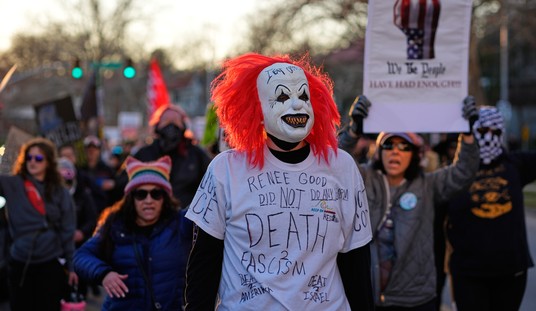As the holiday travel season approaches, millions of American air passengers will become painfully reacquainted with Transportation Security Agency (TSA) screening measures. Passengers must submit to either medically unnecessary X-rays or intrusive gropings. Yet in the realm of health care the federal government has adopted a new policy of discouraging routine screening tests for many cancers. Although these two policies may seem superficially contradictory, they demonstrate an underlying common theme of the government seeking ever-greater control over our bodies and our freedom.
Screening travelers and screening patients share some common features. In both cases the goal is to sort through a large, mostly-normal population to identify the relatively few problem cases — either an undetected terrorist or a hidden cancer.
The TSA’s current approach of mass passenger screening has long angered many Americans. Frequent flyer Tabitha Hale described her own recent horror story at, “No, TSA, I will not lift my skirt for you.” Because the screenings are universal (lest the government be accused of “profiling”), the TSA routinely screens grandmothers and small children who pose no terrorist threat. Even worse, the TSA screeners are of dubious effectiveness. TSA screeners have failed to detect simulated bombs and real guns. The attempted hijacking of Northwest Airlines Flight 253 two years ago was thwarted not by the TSA but by alert passengers.
In contrast to mandatory screening for terrorists, the government is actively discouraging Americans from regular screening for common forms of cancer. The federal government’s U.S. Preventive Services Task Force (USPSTF) recently declared that men should not undergo routine screening for prostate cancer with the PSA blood test — currently considered part of prudent preventive health care for men over age 50 by many primary care physicians and the American Cancer Society. In 2009, the USPSTF similarly recommended restricting screening mammography to women over 50 (and only at 2 year intervals), despite the proven medical benefits of the current practice of screening women starting at age 40 at yearly intervals.
After years of arguing that regular cancer screening saves lives, the government now warns that such routine screening creates unnecessary emotional distress, leads to further risky invasive tests, and raises overall health costs. Regardless of the scientific merits of these claims, blogger Glenn Reynolds notes that many skeptical Americans fear that the government’s real agenda is to save money at the expense of their health. Under ObamaCare legislation, the USPSTF will set the de facto standards for what preventive services will or will not be covered by government insurance (and most private health insurance), thus affecting millions of Americans.
Of course, medical screening tests (like all medical procedures) entail both costs and benefits. For example, most healthy nonsmokers do not need routine CT scans of the chest to detect early lung cancers. The risks of complications due to unnecessary biopsies of incidentally detected benign lung nodules outweigh the much smaller benefits of detecting rare early cancers in these patients. But if a patient has elevated lung cancer risk due to certain genetic conditions, environmental exposure, or significant smoking history, then the benefits of such screening can outweigh the risks.
Hence, Americans should reject a government-mandated “one size fits all” approach to medical cancer screening. Instead, patients should discuss with their physicians the relevant risks and benefits of various screening tests applicable to their individual circumstances. Patients can then decide what levels of risk they are willing to tolerate in the form of false alarms vs. failure to detect early breast, prostate, or lung cancer.
Similarly, Americans should reject the TSA’s “one size fits all” approach to air traveler screening. Most Americans support more selective “Israeli-style” screening, which focuses greater attention on passengers who fit certain age, cultural, and behavioral profiles associated with terrorists. The federal government could also allow airports and airlines to devise their own more passenger-friendly screening procedures, rather than forbidding them from “opting out“ of onerous TSA regulations.
Our government currently tells air travelers, “Submit to our screening despite the dubious effectiveness, bodily invasion, and needless emotional distress” while simultaneously telling patients, “Don’t undergo cancer screening because it might lead to further bodily invasion and emotional distress.” Despite this seeming contradiction, in both cases the government is really saying, “We’ll decide who can do what with your body.” The American founding fathers would never have imagined that the federal government would someday presume to restrict citizens’ medical or travel freedoms in such a fashion.
A current Internet joke goes, “Under ObamaCare, just show up at your nearest airport for free x-rays. Your wife gets a free breast exam. Mention al-Qaeda for a free colonoscopy.” Come 2012, Americans will have to decide whether this will remain a joke or not.









Join the conversation as a VIP Member